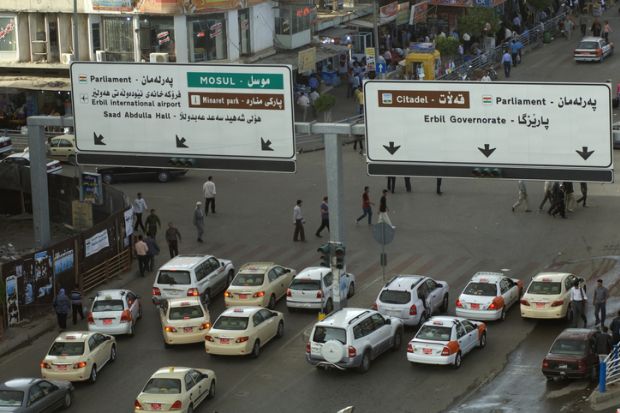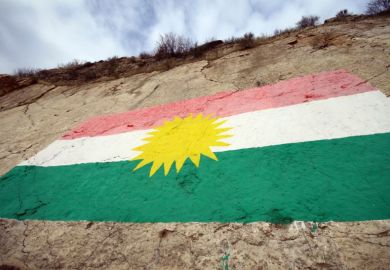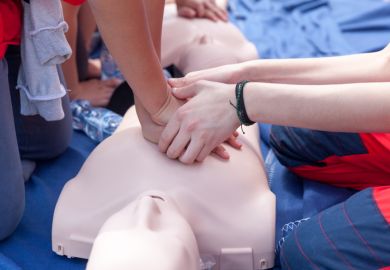Europe has been remarkably successful in extending the reach of the Bologna Process far beyond its own borders since the drive for common standards in higher education was launched in 1999.
For instance, just five years after its inception, NVAO, the quality assurance agency of the Netherlands and Flanders, initiated an ambitious technical assistance project in Armenia. The project, funded by the World Bank, played a pivotal role in shaping Armenia’s higher education quality assurance system and, today, our colleagues from ANQA, Armenia’s quality assurance agency, are active and engaged members of the wider Bologna family.
More recently, as part of the ongoing partnership on capacity-building between the Netherlands and the Kurdistan Regional Government, NVAO has collaborated with officials in Erbil to apply Bologna principles to the unique context of the post-conflict region in the north of Iraq.
In early September, more than 100 highly motivated Kurdish students and teaching staff actively participated in an NVAO training programme on “making Bologna fit for purpose in the Kurdistan region”. While participants were clearly not familiar with interactive formats, small-group activities, or fringe sessions, they liked them all the better for it – and gained an insight into student-centred teaching and learning methods. Fascinating new perspectives were opened up by the exploration of key concepts, such as stakeholders, student involvement, trust, transparency and ownership.
Student involvement in quality assurance is not yet established practice in the Kurdish Region, but teaming up with the European Students’ Union will certainly strengthen student engagement. Likewise, trainees readily recognised the added value of peer review and supported the idea of impartial experts serving as critical friends – a fundamental component of the European Standards and Guidelines (ESG). Kurdish medical colleges, which now seek accreditation through peer review, are starting to share their good practice with other institutions.
Still, Kurdish universities lack a history of peer review, so the concept is new and complex for most of our Kurdish colleagues. It will take time and effort to establish. And this is just one example of the need to acknowledge that specific circumstances – political, economic and cultural – pose significant challenges when implementing Bologna principles.
In accordance with the ESG, the priority should be on establishing an internal quality assurance system. But this is still at a very early stage of development in the Kurdish region, and while we commend the ministerial decision to embrace the Bologna principles, it is also legitimate to question whether this is the optimal path for the region.
For instance, some universities are contemplating the implementation of a “Bologna-like” concept: in essence, a light version of the original. This approach resembles cherry-picking, and I would strongly advise against it. Bologna and the ESG represent a holistic approach to quality assurance, serving specific goals within a European context. Any effort aimed at improving the quality of higher education should be embraced, but half measures are unlikely to be successful.
For the setting up of a Kurdish quality assurance agency, the US is expected to provide financial and technical assistance. However, while the US quality assurance system and the Bologna principles share some similarities, they are fundamentally different. So, although the American financial support is welcomed, it is worth considering whether an American approach is conducive to implementing a European system.
To align the Kurdish region’s higher education system with international standards, a systematic approach is imperative. An overarching project could help establish the ESG’s three pillars of a quality assurance system – internal and external quality assurance, and a quality agency – and make them fit for purpose to the Kurdistan region. Both the government and some local universities are engaged in projects with European partners to adapt the ESG to their teaching and learning environment, but a systematic plan de campagne seems to be missing.
NVAO recognises that the needs of higher education in a post-conflict region go far beyond the scope of any quality assurance agency. And quality assurance issues do not necessarily top university staff’s priority list, especially given an economic context in which teaching staff participating in the NVAO programme had not received their salaries for months and job opportunities for graduates are scarce.
Nevertheless, the event clearly increased participants’ interest in the European approach towards quality assurance. It is to be hoped that, one day, our Kurdish colleagues will take their place as enthusiastic members of Bologna’s growing family east of the Bosphorus.
Michèle Wera is a senior policy adviser for the Accreditation Organisation of the Netherlands and Flanders (NVAO) in The Hague.
Register to continue
Why register?
- Registration is free and only takes a moment
- Once registered, you can read 3 articles a month
- Sign up for our newsletter
Subscribe
Or subscribe for unlimited access to:
- Unlimited access to news, views, insights & reviews
- Digital editions
- Digital access to THE’s university and college rankings analysis
Already registered or a current subscriber?








